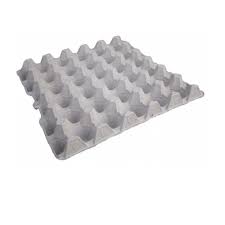Palm Oil Production in Nigeria; The Feasibility Report.

From being the world’s leading producer and exporter of palm oil in the 1960s, Nigeria has fallen to being a net importer to meet the growing domestic demand. Demand is primarily driven by the household consumers who prefer to consume the technical palm oil (TPO) because of its flavor profile, but it is complemented by an increasing demand for the special palm oil (SPO) which can then be fractionated into RBD to meet the needs of industrial processors.
Though domestic production is nearly 900,000 tons, there is an estimated overall gap in Nigeria of between 150 and 300,000 tons of technical palm oil (TPO) and 200,000 tons of special palm oil (SPO), much of which is currently met through imports.
The Nigerian oil palm belt covers twenty-four states including with Ogun, Ondo, Oyo, Edo, Osun, Cross River, Anambra, Enugu, Imo, Abia, Ebonyi, Ekiti, Akwa-Ibom, Delta and Rivers as leading producers. Within the oil palm belt in Nigeria, eighty percent (80%) of production comes from dispersed smallholders who harvest semi-wild plants and use manual processing techniques.
Several million smallholders are spread over an estimated area ranging from 1.65 million hectares to 2.4 million hectares and to a maximum of 3 million hectares. The estimate for oil palm plantations in Nigeria ranges from 169,000 hectares (72,000 ha of estate plantations and 97,000 ha of smallholder plantations) to 360,000 hectares of plantations.
In a further bid to encourage local production of palm products to satisfy local demand, importation of bulk crude and refined vegetable oil was prohibited in 2001.
In response to this ban and consequently increasing demand for local product, there has been some increase in private sector investments in the development of new oil palm plantations and the expansion of existing ones. Smallholdings and out grower schemes were also being promoted by the Federal and State Governments.
Palm oil forms an important part of the local diet in Nigeria because animal fats such as milk and butter are hardly consumed. It is used both as a cooking material and as an ingredient in soups, sauces and a variety of local dishes.
The demand for Palm Oil is high because it is consumed every day in almost every home in Nigeria mainly for cooking purposes.
Palm oil is one of the few highly saturated vegetable fats and is semi-solid at room temperature. Like most plant-based products, palm oil contains very little cholesterol. The raw materials are also readily available. The production technology is simple and the equipments are locally fabricated.
The equipment required for production are Debuncher/Stripper, Boiler, Digester, Presser, Clarifier, Evapourator, Holding Tank, Semi-Automatic Filling Machine, Weighing Machine, Generator, Project Vehicle, Wood Pallets and Accessories.
The installed capacity of the proposed factory is two thousand (2,000) litres per day tons of single shift of eight (8) hours each working at eighty percent (80%) of the installed capacity for three hundred (300) working day producing about sixteen thousand (16,000) packs of five (5) litres of palm oil bi-monthly with input output ratio of 1:20 (or 20% yield).
This report seeks to examine the financial viability or otherwise of producing palm oil in Nigeria.
Table of Contents
EXECUTIVE SUMMARY 1.0 Business Overview 1.1 Description of the Business 1.2 Vision and Mission Statement 1.3 Business Objective 1.4 Critical Success Factor of the Business 1.5 Current Status of Business 1.6 Description of the Business Industry 1.7 Contribution to Local and National Economy 2. Marketing Plan 2.1 Description of product 2.2 Product Packaging and delivery 2.3 The Opportunity 2.4 Pricing Strategy 2.5 Target Market 2.6 Distribution and Delivery Strategy 2.7 Promotional Strategy 2.8 Competition 3. Production Plan 3.1 Description of the Location 3.2 Raw Materials 3.3 Production Equipment 3.4 Production Process 3.5 Production Cost 3.6 Stock Control Process 3.7 Pre-Operating activities and expenses 3.7.1 Operating Activities and Expenses 3.8 Project Implementation Schedule 4.0 Organizational and Management Plan 4.1 Ownership of the business 4.2 Profile of the promoters 4.3 Key Management Staff 4.3.2 Management Support Units 4.4 Details of salary schedule 5. Financial Plan 5.1 Financial Assumption 5.2 Start -up Capital Estimation 5.3 Source of Capital 5.4 Security of Loan 5.5 Loan Repayment Plan 5.6 Profit and Loss Analysis 5.7 Cash Flow Analysis 5.8 Viability Analysis 6.0 Business Risk and mitigation factor 6.1 Business Risks 6.2 SWOT Analysis
Project Specification:
Additional Info
Get this Report
Direct bank transfer
To order the report, Please do pay the sum of ₦30,000 into
Account Name : Foraminifera Market Research Ltd
Account Number : 274 20 569 37
Account Name : Foraminifera Market Research Ltd
Account Number : 101 76 603 95
Account Name : Foraminifera Ventures
Account Number : 011 66 066 32
Make your payment directly into our bank account. Please use your Order ID as the payment reference. Your order will not be shipped until the funds have cleared in our account.
Instructions
After payment call us on 01 -29 52 413 / 08033782777 or email us at foraminiferamarketresearch@yahoo.com with the payment details. After payment confirmation, the soft copy of the report would be sent to you within 24 hours.



